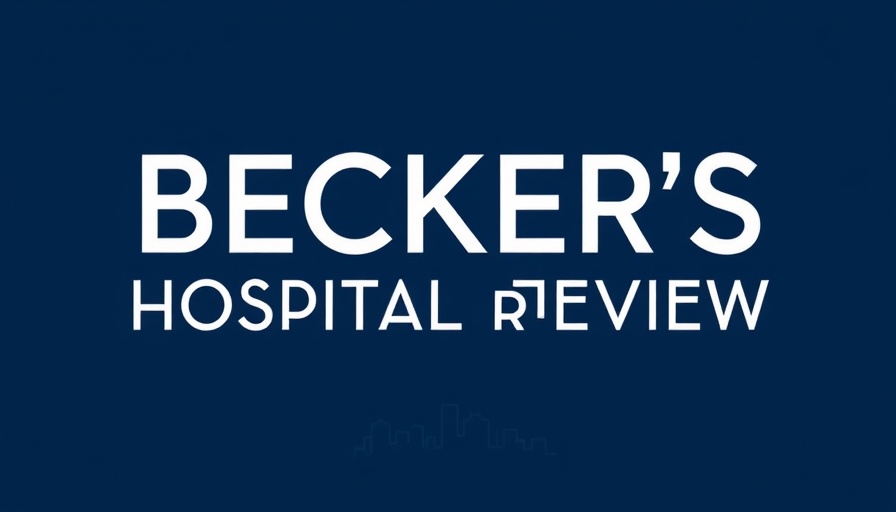
Revolutionizing Healthcare: The Power of Systems Thinking
As healthcare continues to evolve, leaders are recognizing the necessity of systems thinking to improve patient care, particularly in the context of chronic illnesses. This approach not only focuses on the patient as a whole person but also emphasizes the importance of financial sustainability within healthcare organizations. By fostering systemic changes and cultural shifts, healthcare teams can better support patients, especially those with chronic conditions.
Empathy and Collaboration at the Core of Care
In a recent Becker’s webinar discussion, experts in oncology revealed insights on how systems thinking significantly transforms cancer care. Dr. Don S. Dizon, Jessica Quinlan-Woodward, and Dr. Holly Urban emphasized that understanding the patient journey is pivotal. Systems thinking encourages collaboration among all care team members, ensuring that patients have a seamless experience from diagnosis to treatment.
Picuturing the patient merely as someone with a disease overlooks the complexity of their reality. According to Quinlan-Woodward, “Each patient is more than their cancer diagnosis; they have families, careers, and aspirations.” By employing an empathic, holistic approach that assesses mind, body, and spirit, healthcare providers can create tailored care plans that align with their patients' needs and goals.
Balancing Care Quality and Financial Responsibility
With the rising costs of oncology care—where nearly half is attributed to unplanned acute hospital visits—patients and providers alike face significant financial pressures. Dr. Urban noted that implementing systems thinking not only improves patient outcomes but also promises economic sustainability. Recognizing patients at risk of unplanned care, leveraging enhanced care coordination, and adhering to standardized evidence-based care pathways are best practices that can minimize unnecessary hospitalizations.
Sharing Decision-Making: An Inclusive Approach
One of the key elements of systems thinking is shared decision-making. Dr. Dizon stresses the importance of communication between care providers and patients. Whether through patient advisory committees or other feedback mechanisms, listening to patients’ needs plays a crucial role in developing responsive care systems. It is essential for healthcare leaders to understand what practices resonate well with the community to cultivate a conducive healthcare environment.
Training for Tomorrow's Healthcare Challenges
The challenges that accompany chronic care—ranging from aging populations to the multifaceted nature of treatments—demand a well-prepared healthcare workforce. Through training and development, providers can acquire the tools necessary to implement practice efficiency solutions that optimize revenue and enhance patient care.
Incorporating technology such as remote therapeutic monitoring and AI-driven patient engagement tools can empower healthcare teams in managing chronic conditions. These advancements not only simplify medical workflows but also contribute to the effective delivery of patient-centered care.
The Future of Patient-Centric Chronic Care
Looking ahead, it’s clear that patient-centered approaches like systems thinking will redefine chronic care. Emphasizing preventative measures, enhancing communication channels, and leveraging healthcare automation are just a few strategies that organizations can adopt. As healthcare evolves, keeping abreast of Medicare-backed services and RTM programs will be essential for independent practitioners and clinics aiming for growth.
Conclusion: Join the Movement Towards Holistic Healthcare
The insights shared by healthcare leaders underscore a pivotal shift in how chronic care is approached. Implementing systems thinking not only enhances patient outcomes but also addresses economic inefficiencies in healthcare delivery. As healthcare professionals, it is vital to embrace these strategies to foster a compassionate environment that prioritizes patient well-being.
Are you ready to take your practice to the next level? Adopting systems thinking and investing in healthcare automation tools can boost your efficiency and improve patient interactions. Join the movement today to help reinvent chronic care!
 Add Row
Add Row  Add
Add 




 Add Row
Add Row  Add
Add 

Write A Comment